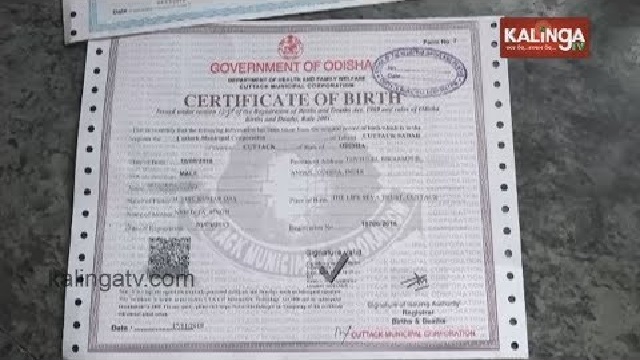Birth certificate to serve as only id for Aadhar, driving license, and more from this date; Check details
The birth certificates is going to be used as the only document for applying for Aadhar, driving licenses, and more.
In a significant development, an amended law is set to streamline bureaucratic processes by allowing the use of birth certificates as the only document for various services, including admission to educational institutions, issuance of driving licenses, applying for Aadhar Cards, passports, and marriage registration. The Registration of Births and Deaths (Amendment) Act, 2023, passed during the last monsoon session, will come into effect on October 1, 2023, following President Droupadi Murmu’s assent on August 11.
The Indian Parliament passed the Registration of Births and Deaths (Amendment) Act, 2023 during the recent monsoon session, ushering in a transformation of administrative procedures. A notification issued by Mritunjay Kumar Narayan, Registrar General and Census Commissioner, has officially announced that the provisions of this Act will be enforced from October 1, 2023.
The amended law will harness the power of birth certificates, allowing them to serve as a single document to confirm a person’s date and place of birth. This revolutionary change will impact a range of essential services, such as admission to educational institutions, the issuance of driving licenses, the preparation of voter lists, marriage registration, and appointments in government bodies at the central or state levels, as well as public sector undertakings and autonomous bodies.
One of the significant advantages of this reform is the creation of a comprehensive national and state-level database of registered births and deaths. This database will enhance the efficiency and transparency of public service delivery while also facilitating digital registration processes.
The legislation also introduces provisions for digital registration and electronic delivery of birth and death certificates. This will not only benefit the general public but also contribute to updating other databases, further enhancing the efficiency and transparency of public services and social benefits.
Must Read: Is A 16 Year Old Allowed To Drive In A Public Place: Know Here
Additionally, the law will simplify the process of obtaining essential documents such as passports and Aadhar numbers, reducing the need for multiple documents to prove one’s date and place of birth.
Key provisions of the Act include a change in the ordering authority for delayed birth or death registrations, making it mandatory for medical institutions to provide a cause-of-death certificate to the registrar, and the appointment of special “sub-registrars” in the event of disasters or epidemics to expedite death registrations and certificate issuance.
Furthermore, the Act aims to address grievances from the general public concerning actions or orders of the registrar or district registrar, and it includes enhanced penalties for non-compliance.
Union Minister of State for Home, Nityanand Rai, highlighted the necessity of amending the original Act to align it with societal changes and technological advancements, ensuring that it remains citizen-friendly.




 Ms Kalinga
Ms Kalinga